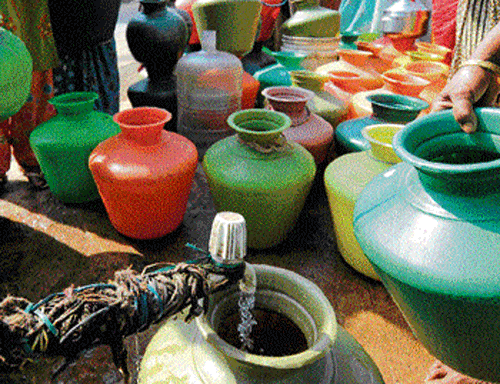
A survey by Central Ground Water Board (CGWB) has revealed that Bangalore city’s ground water contains high level of radioactive gas radon.
The CGWB, under the Ministry of Water Resources, said all the samples collected from Bangalore city for the survey had high radon content exceeding 11.1 Bacquerel per litre, according to the maximum permissible limit determined by the US Environmental Protection Agency.
The CGWB collected around 80 samples from various parts of southern Karnataka, including 30 samples from Bangalore city, all of which had high presence of radioactive gas radon, said union minister for water Harish Rawat in his written reply to the Rajya Sabha on Thursday.
Thirty-six out of the total 39 samples collected from Tumkur district and one out of seven samples collected from Chamarajnagar district also recorded high radon content.
However, test on borewell water taken from Mysore showed that radon content was within the permissible limit in the district. A carcinogenic substance, traces of radon in high levels could directly cause stomach and lung cancer, according to experts. The permissible level of radon is 11.83 Bq/litre. Levels of radon in Bangalore’s ground water is estimated between 56 Bq/l and 1000 Bq/l. “Radon contamination, geogenic in nature, above permissible limit is generally present in freshly pumped water”, said the Minister in his reply.
Radon has a life of only 3.8 days, as its concentration changes significantly on abstraction, aeration, storage and boiling.
Hence, groundwater pumped from borewells and stored in overhead tanks is safe for consumption.
The radon gas escapes into the atmosphere drastically reducing its concentration in water, making it safe for drinking.